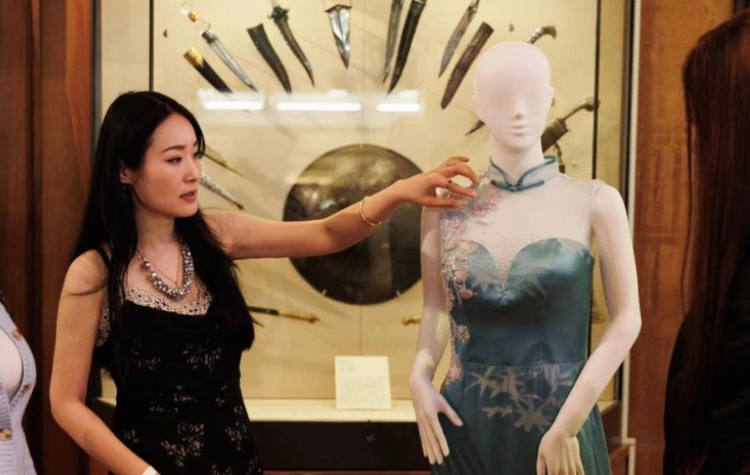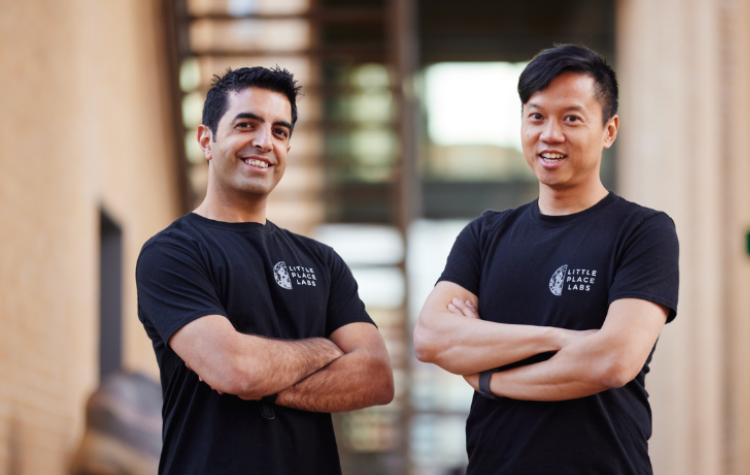If you're a business student whose favourite film is The Social Network, Jobs, The Founder, or maybe Joy—the story of a self-made entrepreneur who invented the Miracle Mop—there’s a good chance you dream of starting your own business one day.
And you wouldn’t be alone. In the 2025 Prospective Student Survey by GMAC, 29% respondents said they hope to become entrepreneurs after business school.
While business school may not be a prerequisite for entrepreneurial success, it is certainly a major advantage. It equips you with the business acumen, technical skills, and network you need to build your own venture from the ground up.
So, what type of business can you start after business school? Fortunately, the options are wide open. Business school graduates go on to launch startups in a variety of industries, from tech and sustainability to fashion and finance.
Find out what kind of businesses b-school grads have founded since graduating.
What Type of Business Can I Start After Business School?
Fashion & Apparel
Believe it or not, attending business school might help you break into the fashion world. Through business school, you can learn what it takes to succeed in the industry and capture the attention of consumers.
In fact, recognising the importance of business acumen in the fashion world, some fashion schools—such as the University of the Arts London’s Fashion Business School—have even started offering MBA programs focused on the global fashion industry.
So, who are some MBA grads taking the fashion world by storm?
Equipped with a degree from Parsons School of Design in New York City and an MBA from Cambridge Judge Business School, graduate Ge Yu launched ANNDERSTAND—a conscious fashion brand founded on the belief that good design should respect both people and the planet.
Utilising her technical garment skills and understanding of business principles, Ge has built ANNDERSTAND into a successful brand that has showcased at both London and Shanghai Fashion Week.
“The MBA didn’t just teach business theory; it gave me the tools and confidence to position our brand at the intersection of sustainability and global commerce,” says Ge.

©ANNDERSTAND
Tatiana de Vogüé, who attended ESSEC Business School, is also working to make the fashion industry a little bit greener with her functional and sustainable swimwear brand, Coastal Reef. Using what she learned from her specialised entrepreneurship master’s and the school’s startup incubator, she was able to turn her idea into a reality.
Some of the most well-known apparel brands have also been born from MBA minds. For example, Phil Knight, co-founder of Nike—the world’s largest athletic brand—started the world-renowned company following his MBA at Stanford Graduate School of Business (GSB), proving that business school can not only help you enter the industry, but enable you to transform it entirely.
Food & Beverage
The food and beverage (F&B) industry is one of the largest sectors globally, with the packaged food market projected to reach $1.6 trillion in the US alone by 2030. As such, it's no surprise that many business school grads look to make their mark in the industry.
Covering areas such as supply chain, marketing, and operations, business schools equip individuals with the skills and knowledge necessary to succeed in the F&B industry. French business school ESCP—which has campuses across Europe, including Paris, Berlin, and London—even offers an MSc in International Food and Beverage Management, built for those interested in careers in the F&B sector as managers, executives, and entrepreneurs.
EHL Hospitality Business School in Switzerland also offers a Food & Beverage Management Specialization, designed with aspiring restaurant entrepreneurs in mind.
Sarah Mack is a great example of how business school can prepare you to launch a business in the F&B sector. After graduating with an MBA from IESE in Barcelona, Sarah teamed up with her sister Emily to launch a wine startup. Vinat connects wine lovers with small, sustainable wines made around the world, with the goal of making quality, authentic wines accessible while supporting independent producers.
Sarah credits her MBA network for opening doors and providing the valuable introductions that have helped grow Vinat to what it is today:
“My business school network and alumni I've met have connected me with countless introductions that have been helpful for the business. My classmates have also supported me by being customers and supporting our company on social media."

©Vinat
Sustainability & Environment
The world of business is getting greener. In fact, according to the latest Global Climate Talent Stocktake Report by LinkedIn, demand for green skills is at an all-time high, with job seekers who have green skills or titles experiencing a 54.6% higher hiring rate than the rest of the workforce.
To keep up with this demand and ensure that graduates have a future-proof skill set, many (if not most) business schools are now heavily integrating sustainability into their curricula. For instance, IE Business School offers a Master's in Sustainability & Business Transformation.
This growing emphasis on sustainability in both the world of business and business education has led many business school grads to launch sustainable companies themselves.
For instance, Mathieu Zuber, a banking and financial engineering Grande École graduate from ESSCA, launched Gekomed in 2024 following a mountain bike accident. During his recovery, he discovered there was no way to sustainably dispose of his knee brace. This inspired him to start Gekomed, which collects orthopedic splints and gives them a second life. Today, Gekomed has collected more than 3,000 splints.
Aziz Kaouech co-founded Dooda, a sustainable enterprise that transforms insects into animal feed—rich in protein but gentle on the planet and local resources—after graduating from EDHEC Business School in France with an MSc in Finance.
“Probably the biggest gift of my business education is just understanding how a business works,” says Aziz.

©Dooda
As the founder of several businesses, ESMT Berlin MBA graduate Dash Markova is truly proof that a business education can help you fulfill your entrepreneurial dreams. Her latest business is The Klimatic Group, a startup that drives sustainable innovation by connecting companies with the sustainable tech they need. She aims to reach €2 million in turnover within two years.
Technology & Innovation
Technology has long held its reputation as one of the most desired industries among prospective business school grads, with 35% of respondents to the GMAC survey hoping to land a role in the sector after graduating.
With the rise of AI and emerging technologies, it's no surprise that tech has retained its popularity. As more businesses become increasingly reliant on technology, business education has also adapted—many programs now offer technology-focused electives or entire degrees dedicated to areas like AI. For example, Henley Business School offers an MSc in Applied AI for Business.
Many business school entrepreneurs are now building startups in tech. For instance, co-founders Bosco Lai and Gaurav Bajaj met during their Executive MBA program at the University of Oxford’s Saïd Business School. With support from the Oxford Space Initiative, the Oxford Saïd Entrepreneurship Forum, and The Oxford Seed Fund, they founded Little Place Labs to provide near real-time insights for both terrestrial and space-based applications. Today, the technology they developed at business school is used by the US Department of Defense.

©Little Place Labs
Meanwhile, Meinke van Oenen used the skills she honed during her degree in Business Administration at Rotterdam School of Management (RSM) to develop Algaenius—an award-winning technology that uses halophilic algae as a sustainable, low-cost desalination method. Meinke hopes her company will help combat future water scarcity.
“It was my experience at RSM that gave me the tools to truly build and scale Algaenius. RSM taught me the language of business: how to effectively communicate with investors, navigate strategic decisions, and form valuable partnerships,” says Meinke.
For some, like Lucy Byrne, starting a business was always the goal. A graduate of the MSc in Entrepreneurship and Innovation at Trinity Business School in Dublin, Lucy is now the founder of Kick-Stat, a platform that provides one-click access to women’s football scores—fulfilling both her passion for entrepreneurship and women’s football.
You can learn more about their journey from business school to entrepreneurship through our My Business Story series.



